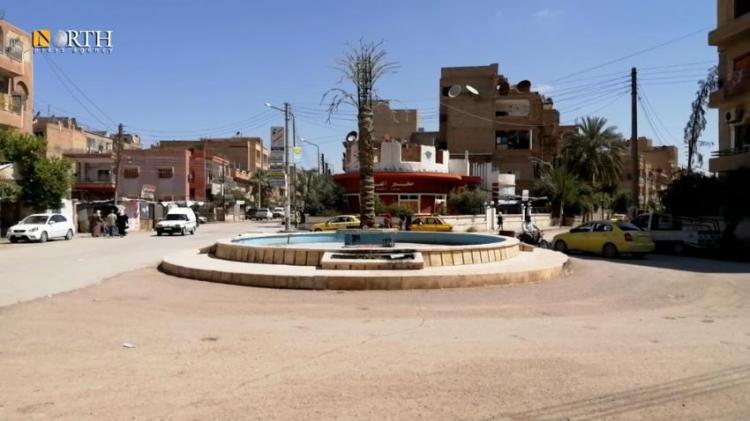Deir ez-Zor – North-Press Agency
Safa' Amer
The effects of the spread of coronavirus are no longer limited to health and economic aspects. They have also affected social life, especially in the governorate of Deir ez-Zor, where the clan takes a major role in social cohesion, and customs and traditions inherited across generations are respected and valued by adults.
As a result of the spread of coronavirus in the world, and the imposition of preventative measures by relevant authorities such as curfew, prohibiting gatherings, closing markets, suspending institutions, schools and universities, some of the social customs that were present during Ramadan have vanished.
The clans have replaced these customs with alternatives to keep in touch during special circumstances, avoiding the spread of the pandemic that has invaded various areas and states worldwide.
Absence of Ramadan invitations
Sheikh Sattam al-Dandal, one of al-Hassoun clan's sheikhs affiliated with al-Ageidat tribe, said to North-Press that their clan still enjoys mutual synergy among their members. But in light of the spread of coronavirus, all evening meetings that were held daily in the house of the sheikh of the clan, where the clan's members talked and consulted to resolve their issues, were abolished.
Al-Dandal noted that his clan does not leave its members alone under any circumstances, but today, "physical distancing was imposed on us, so we have replaced our meetings with phone calls and social media to keep in touch with each other."
Cancelling condolence gatherings
Sheikh Hatem al-Sbeikhan confirmed that gatherings held to bring the tribe's members together such as weddings were suspended, and each one stayed at home to avoid gatherings.
He pointed out that their periodic meetings were also suspended, and they cancelled feasts and condolence gatherings, and condolence is now limited to making a phone call to the deceased's family to comfort them.
The solace is not limited to one country, but it exceeds to the neighboring countries due to the presence of the sons and the uncles of the deceased there, especially that if the deceased has a prominent social position within the clan.
Missing the expatriates during Ramadan
The Sheikh Abu Hussein al-Ne'ma, from Salhiyat al-Bukamal, the sheikh of al-Demeim clan and one of al-Ageidat tribe's sheikhs said: "All the crises that we underwent could not change our customs and traditions within the clan, but coronavirus did."
Al-Ne'ma noted that the coronavirus pandemic prevented the return of a large number of the expatriates from the clan who used to come back to Syria and enjoy Ramadan with their parents and relatives, and hold feasts.
Arabic media reported that Syrian government forces besieged the town of al-Dweir in al-Mayadin district in the eastern countryside of Deir ez-Zor, and prevented entry and exit since March 30th amid a media blackout accompanied by the spread of coronavirus in Syria.
Local media sites accused the Syrian government of hiding facts about the spread of coronavirus in Deir ez-Zor countryside, confirming that the virus is widespread.

